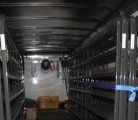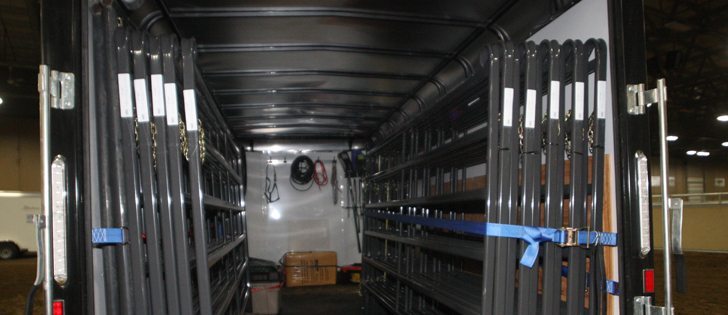Alberta has eight emergency livestock trailers in its fleet and now a course to train responders in their best use has been initiated at Lakeland College in Vermilion, Alta.
The Livestock Handling in Emergencies and Equipment Trailer Training Course will likely begin this summer at Lakeland’s emergency training centre, depending on instructor availability.
Kerri Sinclair, business development coordinator at Lakeland College’s emergency training centre, said a minimum of 12 and maximum of 24 students will be required for the course to run.
Course fees will be in the $300 to $375 range.

Lorna Baird, executive director of Alberta Farm Animal Care, said it will be open to anyone who might be involved in the rescue or handling of livestock involved in a transport accident, building collapse or other calamity.
The course will initially be offered at Lakeland in Vermilion and also under contract for groups who want a visiting instructor to teach it, said Lakeland training services manager Dennis Cunninghame.
Baird said it might also involve training various trainers throughout the province who could then offer the course to others at a local level.
The two-day course, expected to be offered on weekends to accommodate volunteer departments, will have class sessions as well as hands-on training, culminating in evaluation and an exam.
Read Also

Federal budget draws mixed reaction from Canadian agriculture groups
The 2025 federal budget took a step forward in recognizing agriculture’s importance but failed to address pressing challenges like labour disruptions, interswitching and precision technology, say Canadian farm groups.
It will cover various aspects of response theory, such as scene safety, extrication procedures and traffic control factors.
Training related to the livestock emergency trailers will include a description of its equipment, media relations and public relations while on the scene.
Livestock theory makes up a third part of the course. Animal senses and reflexes will be discussed, as well as regulations, liability, making the decision to euthanize and then carrying out euthanasia.
In an April 17 news release, Cunninghame said the course will cast a broad net.
“Ultimately we want to accommodate anyone who might benefit from this training as part of their role to aid in the response to animals in distress,” he said.
Baird said she is hopeful that municipal decision makers will also take the course, because another four
Baird and Cunninghame said the course was piloted twice before final development and got a good response from participants.
Support was provided through Growing Forward 2 and livestock groups represented through AFAC.
The livestock emergency trailers are located in Claresholm, Medicine Hat, Westlock, Vermilion, Red Deer, Hanna and Ponoka, with an eighth roaming unit deployed by AFAC.
More information on the course will be available on the Lakeland College emergency training centre website at www.emergency-training.ca.
















